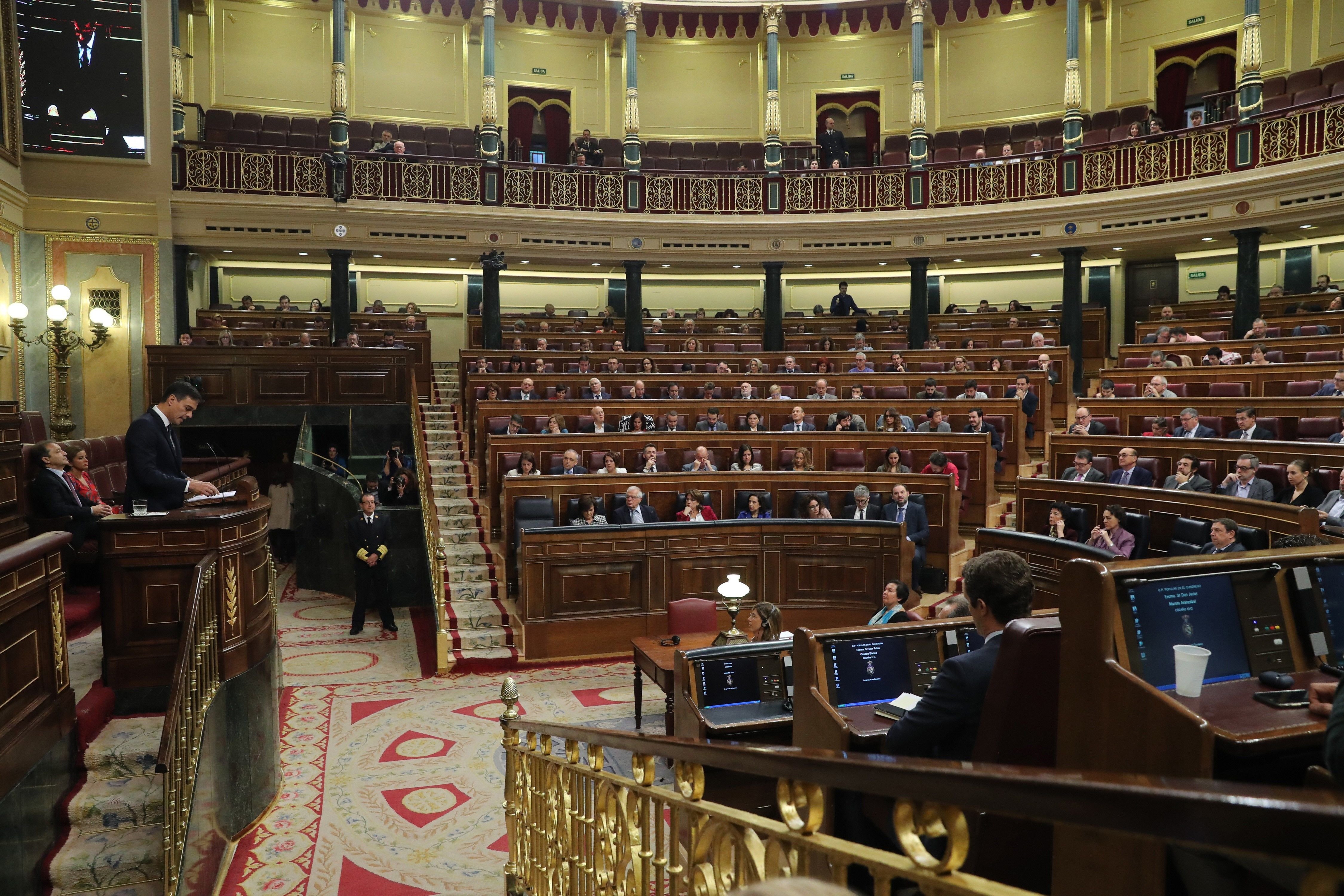Spanish prime minister Pedro Sánchez has this Wednesday defended going ahead with arms exports to Saudi Arabia so as to not harm the Spanish defence industry and to guarantee jobs in Cadiz with contractor Navantia. It is, he said, a matter of acting "with responsibility".
"I have to, here and now, defend the interests of Spain, her strategic interests, which are, what's more, located in areas seriously affected by the drama of unemployment", he told the Congress, asking the chamber for a "lofty perspective" to share this vision.
Sánchez alluded to the controversial death of Jamal Khashoggi, a journalist critical of the country's monarchy, in its consulate in Istanbul. He described that event as "terrible" and condemned it "unconditionally". But that, he insisted, was not enough to stop him acting "with responsibility", as he sees it.
Requirements
Sánchez defended Spanish legislation on arms exports, saying its requirements are "comparable to, if not greater than any other country's". He guaranteed the Spanish government's commitment to the defence of human rights, peace and freedom.
The Spanish prime minister insisted he has to "reconcile interests" and fulfill the previous government's obligations which, he said, meet national and international legal requirements. "My duty is to safeguard legal certainty," he said.
The contract in question, worth 1.8 billion euros (£1.6 billion; $2.1 billion), was signed is between Saudi Arabia and Navantia. The Spanish arms firm is to build five corvettes at its shipyards in Cadiz, providing 6,000 jobs over five years.
Iglesias, in favour of breaking the contract
The leader of Podemos, Pablo Iglesias, has called on Sánchez to revoke the contracts with Saudi Arabia and look for an alternative buyer for the corvettes as a means to ensure the jobs involved. If no buyer can be found, he says the Spanish executive should assume the cost.
Iglesias emphasised that respect for human rights and Spanish and international law require Spain to stop selling arms to Saudi Arabia and urged the government to change course.
Cs, in favour of fulfilling the contract
For his part, leader of Ciudadanos, Albert Rivera, said that they have to fulfill outstanding contracts, but called for Sánchez to set out a future policy for arms sales when human rights violations emerge after a contract has been signed.
Rivera criticised what he sees as a lack of coordination within the government on the subject. He recalled the fiasco of the sale of 400 guided bombs to Riyadh. The defence minister wanted to stop that process, but was undermined by Pedro Sánchez, who decided to go ahead with it anyway.
Rivera, who strongly defended human rights, criticised Sánchez for not making clear what his government's policy would be in future. He also stated a need for a common approach within the EU.

